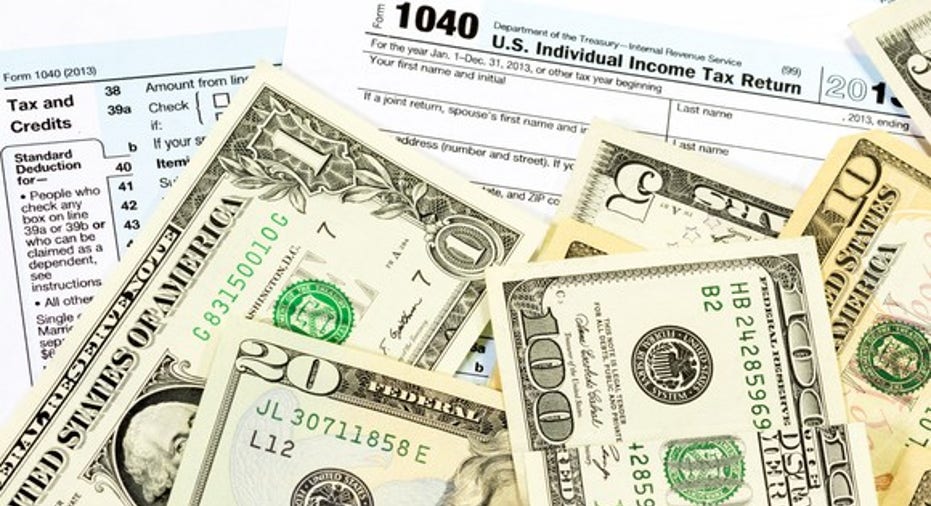Did You File a Tax Extension in 2016? You Need to Read This

Image source: Getty Images
If you filed a tax extension with the IRS in 2016, you have until Oct. 17 to file your federal income tax return. Here's why you shouldn't wait until the last minute, what to do if you owe the IRS money, and what to do if you still aren't 100% ready to file by the deadline.
What a tax extension is, and what it isn't
If you filed an extension and it was accepted by the IRS, it extends the deadline to file your taxes by six months. For the 2015 tax year (the return you'll file in 2016), this means that your extension gives you until Oct. 17, 2016, to file your return.
It does not, however, extend the time you have to pay your taxes. If you have money withheld from your paychecks throughout the year and are anticipating a refund, this doesn't really matter to you. On the other hand, if you're self-employed or if your withholding is not enough, you can face penalties and interest charges for paying any balance owned after the April deadline.
Unless you're 99% sure you won't owe the IRS money, you should file your return and pay any outstanding balance as soon as possible in order to minimize the additional charges that could be added. The penalty for paying late is 0.5% of the unpaid balance, up to a maximum of 25%. And, as of this writing, the IRS interest rate is 4% per year. It's worth mentioning that if you paid at least 90% of your owed taxes with your extension request, you may not face a failure-to-pay penalty.
Still not ready to file?
If you're not ready to file your tax return by the extended tax deadline for whatever reason -- you don't have the money to pay your balance, for instance, or you are still trying to gather documentation for certain deductions -- file anyway with the information you have. The penalties for failing to file are significantly more than the penalties for failing to pay on time.
The late filing penalty is 5% of your unpaid taxes for each month (or part of a month) that your return is late, up to 25% of your unpaid taxes. This is 10 times the monthly rate for failure to pay. If you owe the IRS $3,000 in income taxes for the year, this could translate to as much as $750 tacked on to your balance, plus interest charges. If you're entitled to a refund, there's no late-filing penalty, but you're essentially giving Uncle Sam an interest-free loan of your money. Plus, after three years, your refund is forfeited.
Aside from certain extenuating circumstances, the IRS doesn't grant additional tax extensions. Members of the Armed Forces serving overseas and taxpayers living outside the U.S. may qualify for additional extensions, and victims of certain natural disasters can do so as well, but that's about it.
If you owe the IRS money
If you file your return and have an outstanding balance, you should pay it as soon as possible. Of course, that's often easier said than done. If you can't pay the balance you owe with your tax return, here's what to do:
- File your return anyway. As I mentioned, the penalties for not filing are more severe than the penalties for not paying.
- Pay what you can. Send what you can afford to pay with your return, as it will save you money on interest and penalties later on.
- Request an installment agreement. If you owe less than $50,000, you can apply for an installment agreement online (if you owe more, you'll have to file by mail). What's more, if you owe less than $10,000, agree to pay the full amount within three years, and haven't requested an installment agreement during the past five tax years, you're eligible for a guaranteed installment agreement.
What if you still can't document your deductions?
One common reason people file a tax extension in the first place is not having all of their documentation in order. And, as I mentioned, even if you don't necessarily have documentation for every deduction to which you are entitled, you should still file by the October deadline (without the undocumented deductions) in order to avoid the stiff failure to file penalties.
If you happen to come across the documentation you were looking for at a later date, you have the option to file an amended return. You can generally get a refund based on an amended return within three years (including extensions) of the date you filed the original return.
The point is that even if you can't pay the balance you owe, or aren't convinced you've found the documentation for every deduction you're entitled to, it shouldn't keep you from getting your return in on time.
The $15,834 Social Security bonus most retirees completely overlook If you're like most Americans, you're a few years (or more) behind on your retirement savings. But a handful of little-known "Social Security secrets" could help ensure a boost in your retirement income. For example: one easy trick could pay you as much as $15,834 more... each year! Once you learn how to maximize your Social Security benefits, we think you could retire confidently with the peace of mind we're all after.Simply click here to discover how to learn more about these strategies.
Try any of our Foolish newsletter services free for 30 days. We Fools may not all hold the same opinions, but we all believe that considering a diverse range of insights makes us better investors. The Motley Fool has a disclosure policy.



















